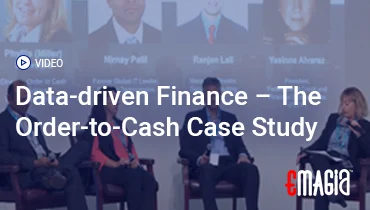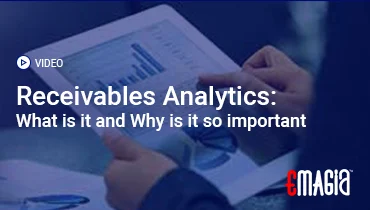In today’s rapidly evolving business landscape, finance professionals are under increasing pressure to do more with less. Manual, repetitive tasks often consume valuable time, diverting attention from strategic analysis and decision-making. Enter Copilot for Finance, a revolutionary AI-powered tool designed to transform financial operations. This cutting-edge solution from Microsoft is redefining how finance teams work by intelligently automating a myriad of everyday tasks.
If you’re curious about the specific tasks automated by Copilot for Finance, how it enhances productivity, or the broad range of Copilot for Finance automation capabilities, you’ve come to the right place. This detailed guide will delve into the core functionalities of Microsoft Copilot for Finance, showcasing its power to streamline workflows, reduce errors, and empower finance professionals to focus on higher-value activities. We’ll explore various Copilot for Finance use cases, highlight the significant benefits of Copilot for Finance, and compare it with traditional finance automation tools to illustrate why it’s a game-changer for the future of finance with AI.
The Dawn of Intelligent Automation in Finance with Copilot for Finance
The financial sector has long sought automation to increase efficiency and accuracy. While traditional financial process automation tools like RPA (Robotic Process Automation) have made strides in handling rule-based, repetitive tasks, Copilot for Finance introduces a new paradigm: intelligent automation driven by generative AI. This goes beyond simple task execution, offering contextual understanding, data analysis, and even content generation within familiar Microsoft 365 applications like Excel, Outlook, and Teams.
This integration brings the power of AI in finance automation directly to the fingertips of finance professionals, fundamentally changing their daily routines and elevating their strategic contributions. Understanding the automation capabilities of Copilot for Finance is key to unlocking its full potential.
Key Tasks Automated by Copilot for Finance: A Comprehensive Overview
Copilot for Finance isn’t just a single-task automation tool; it’s a versatile AI assistant capable of streamlining numerous financial operations. Here’s a breakdown of the key tasks automated by Copilot for Finance:
Automating Financial Reporting and Analysis with Copilot for Finance
Financial reporting and analysis, while critical, are often time-consuming. Copilot for Finance significantly accelerates these processes:
- Automated Data Aggregation and Consolidation: Copilot can pull financial data from disparate sources, including ERP systems (like Dynamics 365 Finance and SAP), and consolidate it within Excel or other M365 apps. This eliminates manual data entry and reduces errors.
- Streamlined Variance Analysis: Within Excel, Copilot can perform detailed variance analysis, identifying discrepancies between actuals and budgets/forecasts. Users can leverage natural language prompts to define variance criteria and get explanations for key drivers, making financial analysis more intuitive.
- Generating Financial Reports and Summaries: From monthly P&L statements to year-over-year performance summaries, Copilot can generate formatted, data-rich reports and even draft presentations directly within Word or PowerPoint, saving immense time on report generation.
- Real-time Financial Insights: Copilot provides on-demand insights by analyzing large datasets, identifying patterns, and highlighting key trends or anomalies, enabling finance professionals to make data-driven decisions faster.
Enhancing Accounts Receivable (AR) Management with Copilot for Finance
The collections process is vital for cash flow, yet often laborious. Copilot for Finance offers robust support to streamline AR tasks:
- Accelerating the Collections Process: Copilot provides AR teams with a detailed overview of customer account information directly within Outlook, including payment history and outstanding invoices, without needing to switch to an ERP system.
- Drafting Personalized Collection Communications: Copilot can assist in crafting tailored email responses to customers regarding overdue invoices, suggesting conversation scripts based on company policies and customer financial data.
- Automated Follow-ups and Action Item Recording: After customer interactions (e.g., Teams calls), Copilot can automatically summarize conversations, highlight action items, and record follow-ups directly back into the financial system, ensuring no detail is missed.
- Prioritizing Accounts for Collections: Copilot can help prioritize which accounts to focus on based on various criteria, optimizing collection efforts for maximum impact on cash flow.
Simplifying Accounts Payable (AP) and Expense Management
AP and expense processes involve significant manual data entry and reconciliation. Copilot for Finance alleviates this burden:
- Automated Invoice Processing and Matching: Copilot can assist with automated data entry from invoices, intelligent matching of invoices to purchase orders and receipts, and identifying exceptions or discrepancies.
- Streamlined Reconciliation Processes: For financial reconciliation, Copilot can compare financial data structures, suggest matching rules, and automate reconciliation reports, significantly reducing the time spent on manual reconciliations and troubleshooting discrepancies in Excel.
- Intelligent Expense Categorization and Compliance Checks: While broader Copilot capabilities, these apply directly to finance by automating the categorization of expenses based on company policies and flagging potential non-compliance or suspicious vendor activity.
- Fraud Detection Assistance: Copilot’s AI algorithms can analyze transaction patterns to detect anomalies that may indicate fraud or duplicate invoices, providing early warnings to finance teams.
Boosting Budgeting, Forecasting, and Planning with Copilot for Finance
FP&A (Financial Planning & Analysis) activities are inherently data-intensive. Copilot for Finance enhances these strategic tasks:
- Predictive Analytics for Financial Forecasting: Copilot can analyze historical data, identify trends, and use predictive models to generate accurate financial forecasts, such as projecting operating expenses or revenue for future quarters.
- Budgeting and Scenario Planning Support: It can assist in creating detailed budgets, suggesting adjustments based on market trends or historical performance, and facilitating “what-if” scenario analysis.
- Variance Explanation and Driver Analysis: Beyond just identifying variances, Copilot can delve into the underlying data to explain the key drivers behind deviations from budget or forecast, providing deeper insights for corrective actions.
- Macroeconomic Insight Summarization: Copilot can summarize macroeconomic conditions from multiple market data sources, helping finance professionals optimize investment and business decisions.
Enhancing Compliance, Audit, and Risk Management with Copilot for Finance
Ensuring regulatory compliance and managing financial risk are non-negotiable. Copilot for Finance assists in these critical areas:
- Regulatory Compliance Monitoring: Copilot can monitor changes in financial regulations, providing proactive alerts and recommendations to ensure ongoing adherence.
- Anomaly and Fraud Detection: Its AI algorithms can detect unusual transactions or spending patterns, alerting finance teams to potential risks or instances of fraud.
- Document Review and Auditing Assistance: Copilot can help in reviewing financial contracts and legal documents, flagging potential issues or inconsistencies, which can significantly reduce time spent on audit preparation and regulatory filings.
- Ensuring Data Integrity: By integrating seamlessly with ERP systems, Copilot helps maintain the integrity of financial data even when working within productivity tools like Excel, crucial for accurate reporting and compliance.
Beyond Automation: How Copilot for Finance Enhances Productivity and Decision-Making
The true power of Copilot for Finance extends beyond simply automating tasks. It profoundly impacts productivity and decision-making in several ways:
- Increased Efficiency and Time Savings: By offloading repetitive and manual tasks, Copilot frees up finance professionals to focus on higher-value activities such as strategic planning, complex analysis, and business growth initiatives.
- Reduced Human Error: Automation, combined with AI-driven validation and reconciliation, significantly minimizes manual errors, leading to higher accuracy in financial reporting and operations.
- Real-time Insights and Data-Driven Decisions: Copilot’s ability to rapidly process vast amounts of data and provide immediate insights empowers finance leaders to make faster, more informed decisions that can drive competitive advantage.
- Seamless Collaboration: Integrated into Microsoft 365 (Teams, Outlook, Excel), Copilot facilitates smoother collaboration among finance teams and with other departments, streamlining communication and information sharing.
- Enhanced User Experience: Interacting with financial data through natural language prompts makes finance tasks more accessible and less daunting, improving user satisfaction and productivity.
Copilot for Finance vs. Traditional Finance Automation Tools: The AI Advantage
While Robotic Process Automation (RPA) and other financial process automation tools have been instrumental in streamlining workflows, Copilot for Finance introduces generative AI capabilities that set it apart:
- Contextual Understanding: Unlike rule-based RPA, Copilot understands context from natural language prompts, allowing for more flexible and intelligent automation.
- Generative Capabilities: Copilot can generate content (reports, emails, summaries) based on data and prompts, a capability not typically found in traditional automation tools.
- Integrated Workflow: Copilot works directly within the familiar Microsoft 365 environment, minimizing the need to switch between applications and streamlining the user experience. Traditional tools often require separate interfaces or complex integrations.
- Strategic Insights: Copilot goes beyond task execution to provide analytical insights, explanations for variances, and predictive forecasts, augmenting human intelligence rather than just replacing manual labor.
This intelligent augmentation positions Copilot for Finance as a significant leap forward in the journey towards autonomous finance.
The Future of Finance with AI: Embracing Copilot for Strategic Advantage
The integration of AI in finance automation through tools like Copilot for Finance is not just a trend; it’s the beginning of a transformative era. As finance departments continue to evolve from back-office functions to strategic business partners, leveraging AI-powered assistants will be crucial for staying competitive.
The future of finance with AI envisions a world where finance professionals are freed from the drudgery of routine tasks, dedicating their expertise to high-impact activities such as strategic planning, risk mitigation, and driving business growth. Copilot for Finance is at the forefront of this revolution, enabling finance teams to become more agile, data-driven, and ultimately, more valuable to their organizations.
Emagia’s Role in Accelerating Your Autonomous Finance Journey with AI
While Microsoft Copilot for Finance revolutionizes individual productivity within Microsoft 365, achieving truly autonomous finance requires a comprehensive platform that integrates and optimizes end-to-end financial operations. Emagia complements and extends the capabilities of Copilot by providing an industry-leading AI-powered platform for Order-to-Cash (O2C) automation.
Emagia’s autonomous finance platform orchestrates and automates critical financial processes such as credit, collections, deductions, cash application, and forecasting. By leveraging Emagia alongside Copilot, organizations can achieve:
- Hyper-Automation Across O2C: Emagia provides deep, vertical-specific AI for complex financial workflows (e.g., predicting payment behavior, automating dispute resolution), working in concert with Copilot’s broader productivity enhancements.
- End-to-End Cash Flow Optimization: While Copilot assists with individual tasks, Emagia focuses on optimizing the entire cash flow cycle, ensuring seamless data flow and intelligent decision-making across all O2C functions.
- Enhanced Strategic Insights: Emagia’s AI brain, Gia, delivers prescriptive insights and recommendations for optimizing working capital and improving days sales outstanding (DSO), complementing the analytical capabilities of Copilot.
- Seamless Integration with Existing ERPs: Emagia integrates deeply with major ERP systems, providing a unified view and control over financial data that can then be leveraged by Copilot for personalized insights.
Together, Copilot for Finance and Emagia create a powerful synergy, empowering finance teams to move beyond mere automation towards truly intelligent and autonomous financial operations, setting new benchmarks for efficiency and strategic impact.
Frequently Asked Questions about Copilot for Finance Automation
What is Copilot for Finance?
Copilot for Finance is an AI-powered assistant from Microsoft, designed to automate and enhance various tasks for finance professionals within familiar Microsoft 365 applications like Excel, Outlook, and Teams. It leverages generative AI to provide insights, automate reporting, streamline workflows, and improve productivity.
What tasks can Copilot for Finance automate?
Copilot for Finance automates a wide range of tasks including data aggregation and consolidation for financial reports, variance analysis in Excel, drafting collection emails in Outlook, summarizing meetings in Teams, assisting with financial forecasting and budgeting, and supporting compliance checks and fraud detection.
How does Copilot for Finance enhance productivity?
Copilot for Finance enhances productivity by automating repetitive and time-consuming tasks, reducing manual errors, providing real-time data insights for faster decision-making, and streamlining collaboration within Microsoft 365 apps. This allows finance professionals to focus on higher-value strategic activities.
What are the benefits of using Copilot for Finance?
The benefits of Copilot for Finance include increased efficiency and time savings, improved accuracy in financial reporting, enhanced data-driven decision-making, better liquidity management, improved compliance, and a more strategic role for finance professionals within the organization. It’s a significant leap in AI in finance automation.
Does Copilot for Finance integrate with ERP systems?
Yes, Microsoft Copilot for Finance is designed to seamlessly connect with existing financial systems and ERPs, including Microsoft Dynamics 365 Finance, Business Central, and SAP. This integration ensures that Copilot can access and utilize live financial data for its automation and insight capabilities.
Is Copilot for Finance a replacement for finance professionals?
No, Copilot for Finance is not a replacement for finance professionals. Instead, it acts as an AI-powered assistant that augments human capabilities. It automates mundane tasks, provides insights, and helps streamline workflows, allowing finance professionals to elevate their roles to more strategic and analytical functions.
What is the future of finance with AI tools like Copilot?
The future of finance with AI tools like Copilot involves more intelligent automation, predictive analytics, and real-time insights. Finance teams will shift from transactional processing to strategic advising, leveraging AI to manage complex financial landscapes, detect risks, and drive business growth through data-driven decisions.
Ready to Automate Your Finance Operations and Drive Strategic Growth?
Explore how Emagia’s AI-powered autonomous finance platform, combined with Copilot for Finance, can transform your financial processes from end-to-end. Connect with Emagia Experts Today!



